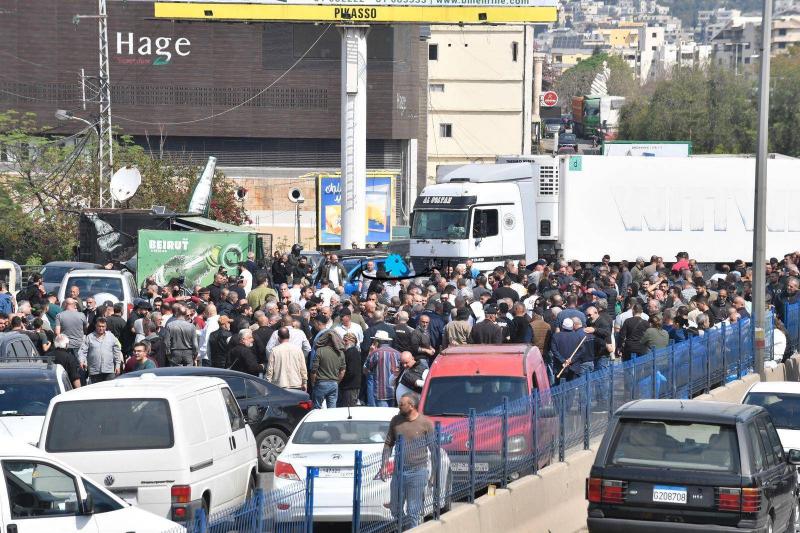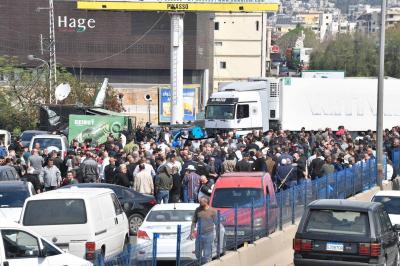Residents of the Jbeil area are feeling frustrated after the kidnapping and murder of Lebanese Forces leader Pascal Suleiman. This incident has intensified their fears about a shift in the region, which has not seen violence even during the Civil War and has remained one of the safest areas, as reported by "Asharq Al-Awsat." Rabi Mahtana, a Lebanese from the area, states that what occurred is very dangerous, as the kidnapping and murder took place in a well-known quiet neighborhood, with all families linked by kinship. He adds: "We are scared and reject what happened." Mahtana believes that this incident indicates a security breakdown and the absence of the state, stressing that trust in the state has been shaken, a general sentiment; however, they have not completely lost hope and still believe in the state and army's protection, emphasizing the need for security agencies to arrest the criminal without any political interference.
The crime raises questions about the state's presence in the area, a belief shared by the residents of Jbeil. Jack Youssef expresses that it has become clear the state is absent, urging it to fulfill its responsibilities so that they do not have to resort to self-defense. He adds that what happened to Pascal Suleiman is more significant than a mere car theft. Youssef continues: "We Christians are targeted, and matters have become permissible; what happened is a heinous criminal act in broad daylight, which occurred today in Jbeil, this Christian area. It is unfortunate that what happened has forced us to speak in sectarian and racist terms." He calls for the kidnapping and murder of Pascal to lead to an initiative for the return and deportation of displaced Syrians from their lands.
On the other hand, Aida Aoudeh called for gallows to be erected, stating: "Christians are targeted, and what happened affirms this, as our youth's blood is wasted." She expressed her support for self-defense, arguing that if they do not protect themselves, there is no one to protect them, and only divine power remains for their protection.
Rita, a Jbeil citizen affiliated with the Lebanese Phalanges Party, states: "As a resident of Jbeil, I never felt that this danger could be close to me since we live in a safe area, even though it is mixed. However, we never felt that crime was near and that a day would come when we might be killed on the road in broad daylight." She continues: "I now feel that there is no longer a safe area in Lebanon and an unsafe area, and treachery has no timing or place." Rita adds that she has started feeling danger and fears that time’s clock may be turned back, and that what they heard of during the war is now being lived again. She expresses concern that citizens might become overly enthusiastic, as the current lawlessness may push them to consider actions thought to be from the past, such as carrying arms for self-defense. Nevertheless, she affirms that they still believe in the state, security agencies, and the Lebanese army.
The public's emotional state is met with a more measured political discourse in the area, although both sides share the same frustration. Sharbel Abou Akle, tasked with managing Jbeil for the Lebanese Forces, asserts that the ongoing killings do not concern only the residents of Jbeil, recalling the assassination of their comrade Elias Al-Hosroni in the village of Ain Ebl in the same manner and style. He notes that investigations have not led anywhere because the perpetrator is professional and possesses capabilities that rival the Lebanese state; therefore, the targeting is not specific to a region or sect but rather to the free Lebanese citizen across Lebanese territory. Abou Akle emphasizes that this is where their call to action stems from, pointing out that objections extend beyond merely targeting the Jbeil area.
Regarding calls for self-defense, Abou Akle remarks that instinctive reactions could spiral out of control and venture into unacceptable directions, stating: "What happened in Jbeil is an instinctive reaction, but as the Lebanese Forces Party, we still believe in the Lebanese state and want it. However, if the state fails to fulfill its duties, and in the presence of a party that dominates it and manages its affairs as it wishes, citizens will undoubtedly turn to protect themselves on all levels, not just on the security level, but economically and socially as well; because all these matters are intertwined with the political file."
In turn, National Liberal Party official Jean Souma asserts that the targeting of Pascal by Syrians affects all Lebanese. The National Liberal Party was the first to oppose the Syrian displacement movement and was then accused of racism. He adds that they feel more targeted because crimes are occurring in their areas; however, the threat of displacement affects all Lebanese, not just Christians, but also Muslims. Therefore, there must be a unified call for the return of the displaced Syrians. He continues: "We oppose self-defense, and since the 1990s we have called for the dissolution of militias so that everyone is under the umbrella of the Lebanese state, especially since the security agencies remain strong and are doing their job, evidenced by the fact that the largest and most horrifying crimes are uncovered within hours, something we commend."




